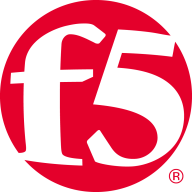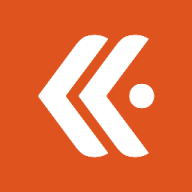

Kentik and F5 Silverline Managed Services compete in the network performance and security management category. Kentik seems to have the upper hand in real-time traffic analysis and user experience, while F5 Silverline is stronger in application security management.
Features: Kentik provides NetFlow visualization, real-time traffic insights, and a flexible data explorer. Its ability to monitor network flows aids in planning and security. F5 Silverline Managed Services offers application security management and L7 firewall protection, making it easy to apply security policies across different environments without complex setups.
Room for Improvement: Kentik users suggest enhancing user and security rights granularity, improving the usability of APIs, and developing more actionable insights. F5 Silverline could benefit from better API integration, improved reporting, and more cost-efficient pricing. Users also seek a faster support response and additional global points of presence.
Ease of Deployment and Customer Service: Kentik, as a SaaS solution, is appreciated for its straightforward deployment and exemplary technical support, offering proactive communication. F5 Silverline Managed Services provides flexibility across environments like hybrid and public clouds, although its features can be complex to navigate. Both offer strong customer service, but Kentik receives higher praise for its prompt and expert responses.
Pricing and ROI: Kentik uses a device-based pricing model, offering discounts for educational sectors. It is seen as cost-effective, reducing transit expenses and offering substantial traffic visibility despite higher initial costs. F5 Silverline's pricing is considered high, based on bandwidth and additional features, prompting concerns over competitiveness with options like Cloudflare and the need for flexible pricing models.
In production environments, especially for service providers on IP networks and data centers, Kentik helps in reducing the time to identify and resolve issues.
Their support team is responsive, and they deliver timely updates, addressing any glitches promptly.
They resolve the issues by joining me to fix them.
They have monthly calls and discuss the product roadmap with us to determine what is needed.
I have mostly used forums for any support needed because the setup is straightforward and the documentation is quite good.
F5 Silverline Managed Services is scalable enough without observed limitations.
The solution is fully scalable, and I would give it a rating of ten on a scale of one to ten for scalability.
Kentik's integration with Kubernetes makes scaling easier.
You can scale as many devices and tests as you want, but you should have a good number of credits in your accounts.
They offer regular updates, and overall, I would rate the stability of the solution as nine out of ten.
In production, however, dimensioning of the underlying platforms is something to be mindful of.
Based on stability, I would give Kentik a nine.
Introducing preemptive support prompts would reduce the manual effort required for creating policies or blocking specific IPs.
Improvements could include the creation of highly optimized profiles.
More work is required to integrate AI for troubleshooting, simplifying root cause analysis, and providing suggested solutions for network issues.
On a scale where ten is very expensive, I would rate the pricing as three.
The solution is expensive
Kentik’s pricing is competitive in the marketplace.
The pricing is good and aligns with the market target.
It allows for centralized management of certificates, protecting applications from top ten attacks like SQL injection and cross-site scripting.
The monitoring tab displays GET and POST requests in a readable format, making it accessible even to non-tech-savvy individuals.
One of the most valuable features of Kentik, especially for service providers, is its ability to visualize all the BGP peering and the status of the BGP peering platform.
Overall, the ease of use and the fact that it meets client expectations are major positives.
Kentik is easy to use and set up.
| Product | Market Share (%) |
|---|---|
| F5 Silverline Managed Services | 1.6% |
| Kentik | 0.8% |
| Other | 97.6% |

| Company Size | Count |
|---|---|
| Small Business | 6 |
| Midsize Enterprise | 2 |
| Large Enterprise | 8 |
| Company Size | Count |
|---|---|
| Small Business | 4 |
| Midsize Enterprise | 3 |
| Large Enterprise | 8 |
F5's Silverline Managed Services is a SaaS solution delivering DDoS protection, managed Web Application Firewall (WAF) services, and managed Shape Security Fraud and Anti-bot solutions.
Silverline services include 24x7 access to F5's Security Operations Center (SOC). F5's expert security professionals use F5 products with state-of-the-art security tools to ensure the best protection possible. As an add-on to Silverline DDoS or WAF services, Silverline Threat Intelligence integrates dynamic lists of threatening IP addresses to give context for policy decisions.
Kentik's AIOps Network Traffic Intelligence platform unifies network operations, performance, security, and business intelligence.
With a purpose-built big data engine delivered as public or private SaaS, Kentik captures a high-resolution view of actual network traffic data and enriches it with critical application and business data, so every network event or analysis can be tied to revenue & costs, customer & user experience, performance & risk.
We monitor all Distributed Denial-of-Service (DDoS) Protection reviews to prevent fraudulent reviews and keep review quality high. We do not post reviews by company employees or direct competitors. We validate each review for authenticity via cross-reference with LinkedIn, and personal follow-up with the reviewer when necessary.